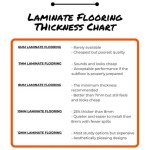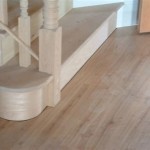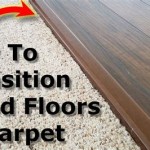Waterproof Flooring for Bathroom Showers: A Comprehensive Guide
Selecting the appropriate flooring for a bathroom shower area requires careful consideration of several factors, chief among them being water resistance. The shower environment presents a constant challenge due to high humidity and direct exposure to water. Traditional flooring materials like hardwood or certain types of laminate are susceptible to water damage, leading to swelling, warping, and the growth of mold and mildew. Waterproof flooring solutions offer a robust alternative, designed to withstand these conditions without compromising aesthetics or functionality.
The primary purpose of waterproof flooring in a bathroom shower is to prevent water from seeping into the subfloor. This protective barrier helps maintain the structural integrity of the bathroom and prevents costly repairs down the line. Various types of waterproof flooring materials are available, each with its own set of advantages and disadvantages. This article delves into the characteristics of several popular waterproof flooring options suitable for bathroom showers, exploring their benefits, installation requirements, and maintenance considerations.
Understanding Waterproof vs. Water-Resistant Flooring
It is crucial to differentiate between waterproof and water-resistant flooring. While both terms suggest protection against moisture, they represent different levels of performance. Water-resistant flooring can withstand spills and splashes for a limited time, but prolonged exposure to water can lead to damage. In contrast, waterproof flooring is designed to be completely impervious to water, making it ideal for environments like bathroom showers where constant water exposure is expected.
Water-resistant flooring typically features a surface coating that repels water, but the core material may still be susceptible to moisture penetration. Examples include some types of treated wood or laminate flooring with a water-resistant coating. If water penetrates the surface layer, the underlying material can swell, warp, or harbor mold growth. Waterproof flooring, on the other hand, usually consists of materials that are inherently non-porous and resistant to water damage throughout their entire structure. This characteristic ensures that even if the surface is scratched or compromised, the flooring will continue to protect the subfloor from water intrusion.
Popular Waterproof Flooring Options for Bathroom Showers
Several flooring materials are well-suited for bathroom showers due to their waterproof properties. Each option offers a unique combination of aesthetics, durability, and cost-effectiveness.
1. Porcelain Tile: Porcelain tile is a popular choice for bathroom showers due to its inherent waterproof nature. It is made from dense clay that is fired at high temperatures, resulting in a durable and non-porous material. Porcelain tile is highly resistant to water absorption, making it an excellent barrier against moisture penetration. Additionally, porcelain tile is resistant to staining, scratching, and fading, ensuring long-lasting beauty. Its versatility in design allows for a wide range of aesthetic choices, from classic to contemporary.
However, porcelain tile can be cold underfoot, which may be a drawback for some homeowners. Installing radiant heating beneath the tile can mitigate this issue, but it adds to the overall cost. Installation requires skill and precision, as improper installation can lead to cracks and leaks. Grout lines between tiles also require regular maintenance to prevent mold and mildew growth, although epoxy grout can provide enhanced protection.
2. Ceramic Tile: Similar to porcelain tile, ceramic tile is another waterproof option for bathroom showers. While it is also made from clay and fired at high temperatures, ceramic tile is generally less dense and slightly more porous than porcelain. This difference means that ceramic tile may be more susceptible to water absorption than porcelain, but it is still a viable option for bathroom showers when properly installed and sealed. Ceramic tile offers a wide range of design options and is typically less expensive than porcelain tile.
Like porcelain tile, ceramic tile can be cold underfoot and requires careful installation to prevent cracks and leaks. Grout lines also require regular maintenance. It's important to choose a ceramic tile specifically rated for wet areas to ensure adequate waterproofing. Selecting a darker grout color can help minimize the appearance of stains and discoloration.
3. Luxury Vinyl Tile (LVT) and Luxury Vinyl Plank (LVP): LVT and LVP flooring are synthetic materials designed to mimic the look of natural stone or wood while offering superior waterproof performance. These products are typically constructed with multiple layers, including a wear layer, a decorative layer, and a waterproof core. The waterproof core prevents water from penetrating the flooring, making it suitable for bathroom showers. LVT and LVP are available in a wide range of styles, colors, and textures, offering versatility in design.
LVT and LVP are generally warmer and softer underfoot than tile, providing a more comfortable experience. Installation is typically easier than tile, with options for click-lock or glue-down installations. However, it’s important to select high-quality LVT or LVP products from reputable manufacturers to ensure long-term durability and waterproof performance. Cheaper options may be prone to scratching or delamination. The subfloor must be properly prepared to ensure a smooth and level surface for installation.
4. Sheet Vinyl: Sheet vinyl flooring is a continuous, seamless flooring material that offers excellent waterproof protection. It is made from a single sheet of vinyl that is adhered to the subfloor, eliminating grout lines and potential leak points. Sheet vinyl is available in a variety of patterns and colors, providing design flexibility. It is also relatively affordable and easy to install, making it a popular choice for budget-conscious homeowners.
The seamless nature of sheet vinyl provides a significant advantage in preventing water damage. However, it's important to install it properly to avoid air pockets or bubbles under the surface. The subfloor must be perfectly smooth and level, as any imperfections will be visible through the vinyl. High-quality sheet vinyl is more resistant to tearing and scratching, so investing in a thicker, more durable product is recommended.
5. Stone Flooring: Natural stone flooring, such as marble, granite, and slate, can be a beautiful and durable option for bathroom showers. However, not all stone is inherently waterproof. Some types of stone are porous and require sealing to prevent water absorption. Even with sealing, regular maintenance is necessary to ensure long-term waterproof performance. The natural variations in color and texture of stone flooring can add character and visual appeal to a bathroom.
The main drawback of stone flooring is its cost. Natural stone is often more expensive than other flooring options. Installation can also be more complex, requiring specialized tools and expertise. Stone can be cold underfoot, similar to tile, and may require radiant heating for added comfort. Regular sealing is essential to maintain its waterproof properties and prevent staining.
Key Considerations for Choosing Waterproof Shower Flooring
Selecting the best waterproof flooring for a bathroom shower involves evaluating several key factors to ensure a successful and long-lasting installation.
1. Waterproof Rating and Material Composition: The most important consideration is the waterproof rating of the flooring material. Look for products specifically labeled as "waterproof" and check the manufacturer's specifications to ensure they are suitable for wet environments. Understanding the material composition is also crucial. Non-porous materials like porcelain and sheet vinyl offer inherent waterproof protection, while other materials like stone may require sealing.
Reviewing product certifications and testing data can provide further assurance of waterproof performance. Look for certifications from reputable organizations that test flooring materials for water resistance and durability. Reading customer reviews and seeking recommendations from experienced installers can also provide valuable insights into the real-world performance of different flooring options.
2. Installation Requirements: Proper installation is critical to achieving optimal waterproof performance. Some flooring options, like tile and sheet vinyl, require professional installation to ensure a watertight seal. Other options, like LVT and LVP, may be suitable for DIY installation, but careful attention to detail is still necessary. Preparing the subfloor properly is essential for all types of flooring. The subfloor must be clean, level, and dry to prevent problems such as cracks, leaks, and uneven surfaces.
Following the manufacturer's instructions precisely is crucial for a successful installation. Using the correct adhesives, sealants, and tools is essential for creating a waterproof barrier. For tile installations, proper grout application and sealing are critical to prevent water penetration through the grout lines. Consider hiring a professional installer if you are unsure about any aspect of the installation process.
3. Maintenance and Cleaning: Even with waterproof flooring, regular maintenance and cleaning are necessary to prevent the growth of mold and mildew and maintain the flooring's appearance. Cleaning practices should be tailored to the specific flooring material. Tile and stone flooring require regular scrubbing with a mild cleaning solution and a grout brush to remove dirt and grime. LVT, LVP, and sheet vinyl can be cleaned with a damp mop and a mild detergent.
Avoid using abrasive cleaners or harsh chemicals that can damage the flooring surface. Regularly inspect the flooring for signs of wear and tear, such as scratches, cracks, and stains. Address any issues promptly to prevent further damage. Consider using a dehumidifier to reduce humidity levels in the bathroom, which can help prevent the growth of mold and mildew. Proper ventilation is also important for removing excess moisture after showering.
Additional Considerations
Beyond the core waterproof characteristics, installation needs, and maintenance requirements, there are other facets to consider when picking the right flooring material.
Budget: Waterproof flooring options vary widely in price. It's important to establish a budget and compare the cost of different materials, including installation fees. Cheaper options may sacrifice durability or aesthetics, while more expensive options may offer superior performance and style.
Aesthetics: The flooring should complement the overall design of the bathroom. Consider the color, pattern, and texture of the flooring and how it will coordinate with other elements, such as the walls, fixtures, and accessories.
Comfort: Some flooring materials are more comfortable underfoot than others. Tile and stone can be cold, while LVT, LVP, and sheet vinyl tend to be warmer. Consider adding radiant heating beneath the flooring for added comfort.

Can I Use Waterproof Flooring For Shower Walls Saint Louis Mo Luminous

Best Bathroom Flooring Options

Waterproof Vinyl Flooring The Bathroom Showroom

The Ultimate Guide To Waterproof Flooring For Bathrooms

Waterproof Bathroom Flooring Options Twenty Oak

Top Choices For Bathroom Flooring Materials When Remodeling Degnan Design Build Remodel

The Best Waterproof Floors Carpet One Floor Home

The Best Bathroom Flooring Options Available For Renovations

Waterproof Bathroom Flooring Options Twenty Oak

Can I Install Vinyl Planks In Bathrooms Signature Flooring Floor Tiles
Related Posts








